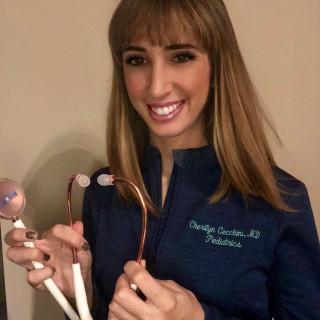
The room started to feel warm. I stood there with my team knowing that this parent had earned a reputation for being “difficult.” I was prepared for that, and ready to address all her concerns so that I could put her mind at ease. Unfortunately, the conversation was not going in the direction that I had hoped.
Everyone experiences these moments of difficulty, and everyone treats them differently. Some leave the room and re-enter later when emotions have settled and calm has returned. Others try to divert the conversation or take a very passive approach as the buffer, listening to all of the parent’s worries and concerns. I’ve used all of these tactics.
With this parent, however, I felt determined to assure her in the moment and let her know we were on the same team. She still seemed dissatisfied at the end of the conversation, and demanded to speak to the attending physician, a common occurrence. You hope that the attending physician echoes your sentiment and imparts the same message that you provided as the trainee. I quickly let the parent know that the attending physician would see her later.
My attending physician at the time was a young, female physician similar to me in appearance and approach. She echoed the same message that I had delivered previously to the parent and attempted to build a better rapport with her. She took the buffer approach, sweetly listening intently to all of the parent’s dissatisfactions.
At the end of the conversation, the parent demanded to see an alternate attending physician.
Later, as we de-briefed the situation, my attending physician joked, “She really just wants to see an older male with gray hair.” At the time, I laughed along with her. It wasn’t until later in the day, when I saw an older, gray-haired male speaking to this parent in the hallway, that I realized she was right.
This parent wanted to hear everything that we had told her from and older, experienced male physician. In fact, it wasn’t until she spoke to this doctor that she expressed relief and satisfaction with her child’s care.
Interestingly, earlier studies have shown older adults reporting the quality of hospital care more positively when cared for by a female physician. In fact, this was particularly true for female patients in comparison to males. Others have shown that patients tend to interrupt women physicians and demonstrate greater assertiveness, which may be interpreted as both a sign of disrespect or as a sign of feeling more comfortable. It is difficult to say which is the correct explanation.
Regardless, I think it would be incredibly valuable to assess if parents of pediatric patients prefer one gender more than the other when choosing a physician to care for their child. I believe that exploring the reasons for any preference would prove valuable, whether those reasons be experience, appearance, clinical approach, or something else. By understanding the reasons behind these preferences, providers can learn the preferred behaviors and, hopefully, render the gender of the provider a moot factor.
Cherilyn Cecchini, MD, is a pediatrician in Washington D.C. and a 2018–2019 “Doximity Author.”






